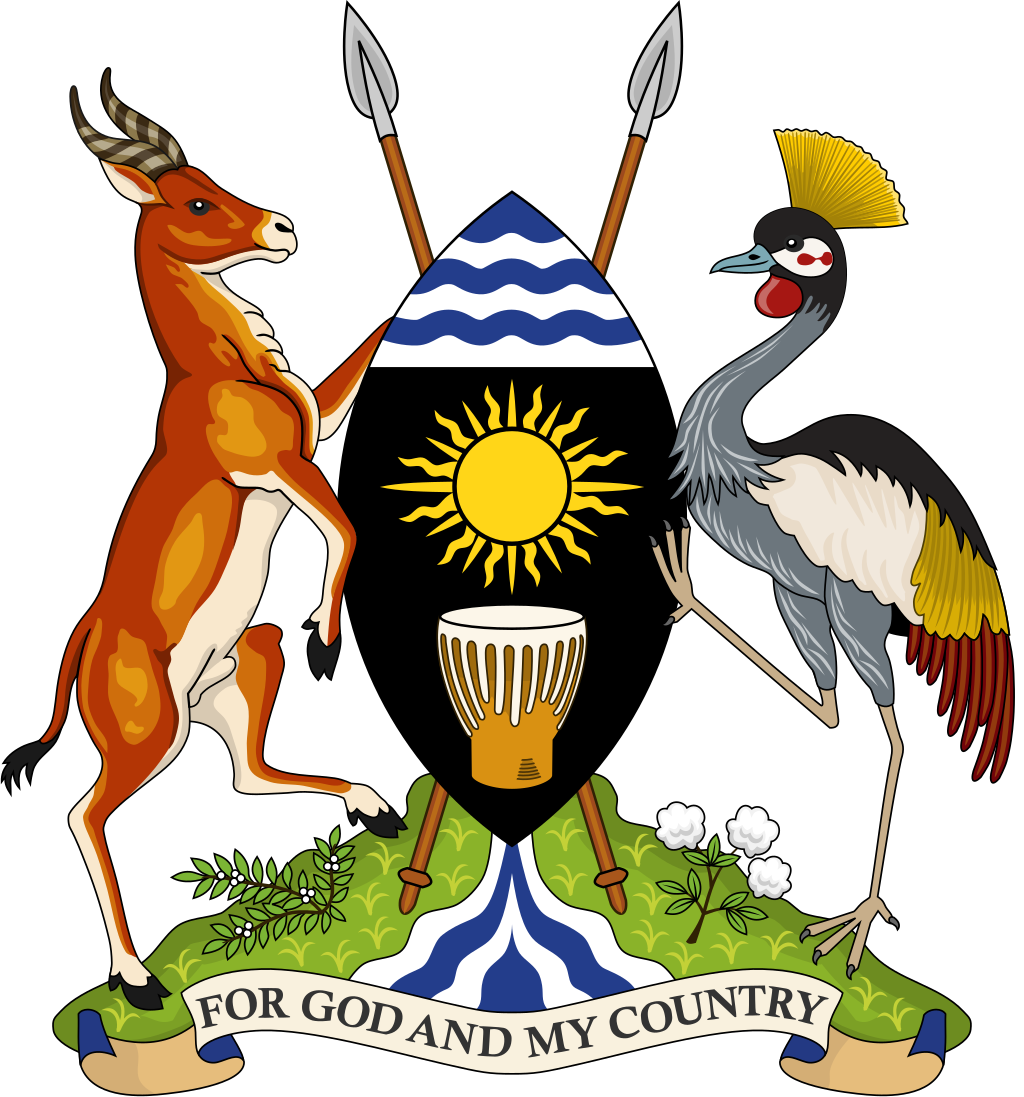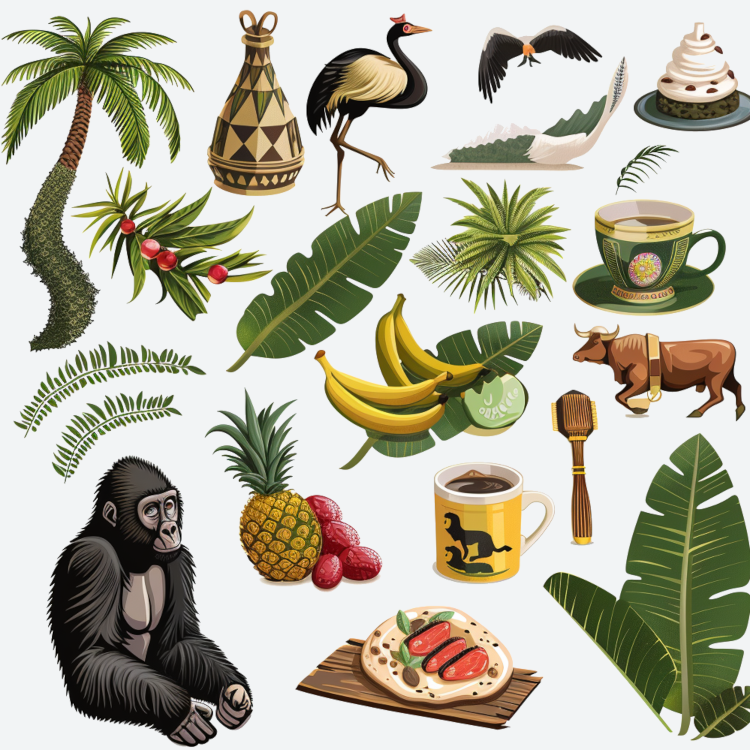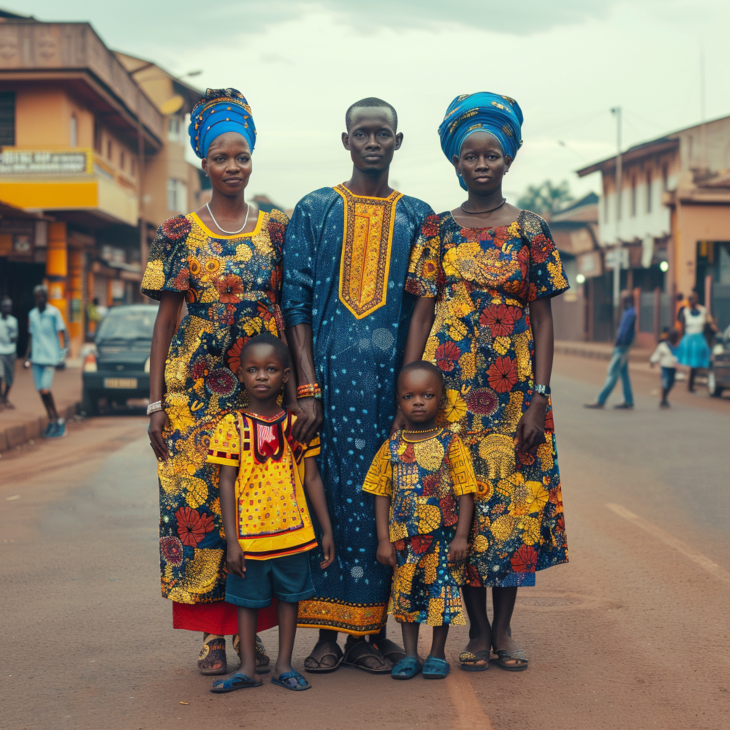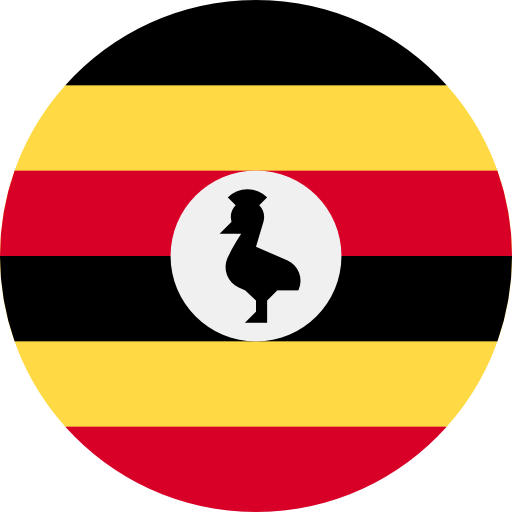About UG

Location
Uganda is a landlocked country located in East Africa, bordered by South Sudan to the north, Kenya to the east, Tanzania to the south, Rwanda to the southwest, and the Democratic Republic of the Congo to the west.
Capital
The capital city of Uganda is Kampala.
Population
As of the latest estimates, Uganda has a population of approximately 47 million people, making it one of the most populous countries in Africa.
Area
Uganda covers an area of about 241,550 square kilometers (93,260 square miles).
Official Language
The official languages of Uganda are English and Swahili. However, Luganda is also widely spoken, particularly in the central region where Kampala is located.
Government
Uganda is a presidential republic with a multi-party system. The President serves as both the head of state and government. The Parliament of Uganda is a unicameral body consisting of the National Assembly (Parliament) and the President.
Independence
Uganda gained independence from British colonial rule on October 9, 1962.
Currency
The currency of Uganda is the Ugandan shilling (UGX).
Economy
Uganda has a mixed economy with agriculture as the mainstay. The country's economy is also supported by industries such as manufacturing, mining, tourism, and services. Agriculture employs a significant portion of the population and produces crops such as coffee, tea, cotton, and maize.
Natural Features
Uganda is known as the "Pearl of Africa" for its stunning natural beauty and diverse landscapes. The country is home to the source of the Nile River, Lake Victoria (the largest lake in Africa), dense forests, savannas, and snow-capped mountains. Uganda is also famous for its wildlife, including endangered mountain gorillas in Bwindi Impenetrable National Park.
Culture
Uganda has a rich cultural heritage with over 50 ethnic groups, each with its traditions, languages, and customs. Traditional music, dance, and art are integral parts of Ugandan culture, and ceremonies such as weddings, naming ceremonies, and initiation rites are important social events.
Challenges
Uganda faces various challenges, including poverty, high unemployment rates, inadequate healthcare and education infrastructure, political instability, corruption, and environmental degradation. The country also grapples with issues such as HIV/AIDS and other infectious diseases.
Infrastructure
Uganda's infrastructure is relatively underdeveloped, particularly in rural areas. While the road network is improving, access to electricity, clean water, healthcare, and education remains limited in many parts of the country.
International Relations
Uganda maintains diplomatic relations with countries around the world and is a member of various international organizations, including the United Nations, the African Union, and the Commonwealth of Nations.
Tourism
Tourism is a growing industry in Uganda, with visitors attracted to its natural attractions, wildlife, and cultural heritage. Major tourist destinations include national parks such as Queen Elizabeth National Park, Murchison Falls National Park, and Kidepo Valley National Park, as well as cultural sites like the Kasubi Tombs and the Uganda Museum in Kampala.

National Items of Uganda
Mountain Gorillas
Uganda is one of the few places in the world where mountain gorillas can be found, particularly in Bwindi Impenetrable National Park and Mgahinga Gorilla National Park. They symbolize Uganda's rich biodiversity, conservation efforts, and ecotourism industry.
Lake Victoria
Lake Victoria, the largest lake in Africa, is a vital resource for Uganda. It symbolizes natural beauty, freshwater resources, and economic activities like fishing.
Ugandan Crane
The grey-crowned crane is the national bird of Uganda. It symbolizes elegance, beauty, and national pride.
River Nile
The Nile River, particularly the section that flows through Uganda, symbolizes natural beauty, historical significance, and the lifeblood of the country's ecosystems.
Rwenzori Mountains
The Rwenzori Mountains, also known as the Mountains of the Moon, symbolize natural beauty, ecological diversity, and adventurous spirit.
Matoke
Matoke, a type of banana, is a staple food in Uganda. It symbolizes agricultural heritage, sustenance, and traditional cuisine.
Ugandan Coffee
Uganda is known for its high-quality coffee, particularly Robusta and Arabica. It symbolizes agricultural heritage, economic significance, and global trade connections.
Traditional Dance
Traditional Ugandan dances, such as the Kiganda and Bakisimba, symbolize rich cultural heritage, artistic expression, and social traditions.
Barkcloth
Barkcloth, made from the bark of the Mutuba tree, symbolizes traditional craftsmanship, cultural heritage, and artisanal skills.
Ugandan Handicrafts
Traditional Ugandan handicrafts, including woven baskets, pottery, and beadwork, symbolize rich artisanal heritage, cultural identity, and craftsmanship.
Ugandan Tea
Tea plantations in Uganda, particularly in regions like Mbarara and Fort Portal, symbolize agricultural heritage, economic importance, and cultural practices.
Murchison Falls
Murchison Falls, where the Nile River squeezes through a narrow gorge, symbolizes natural beauty, power, and the country's commitment to preserving its natural wonders.
Rolex
Rolex is a popular Ugandan street food consisting of a rolled chapati with eggs and vegetables. It symbolizes the rich culinary heritage and local food culture.
Ankole Cattle
Ankole cattle, known for their large horns, symbolize agricultural heritage, traditional livelihoods, and cultural significance in Uganda.
Sipi Falls
Sipi Falls, a series of waterfalls located on the edge of Mount Elgon, symbolizes natural beauty, ecological diversity, and the adventurous spirit of the country.
Buganda Kingdom
The Buganda Kingdom is one of the oldest and most influential kingdoms in Uganda, symbolizing historical heritage, cultural identity, and traditional governance.
Cassava
Cassava is a staple crop in Uganda. It symbolizes agricultural heritage, sustenance, and traditional farming practices.
Kasubi Tombs
The Kasubi Tombs, a UNESCO World Heritage site, are the burial grounds for Buganda kings. They symbolize historical significance, cultural heritage, and architectural beauty.
Nile Perch
Nile Perch, found in Lake Victoria, symbolizes economic importance, fishing industry, and culinary traditions.

Uganda's national anthem is called "Oh Uganda, Land of Beauty" (Ee Uganda, Nkutukuvu). Here are the lyrics in the original Luganda language, along with an English translation:
Ee Uganda, may God uphold thee,
We lay our future in thy hand,
United, free, for liberty
Together we'll always stand.
Oh Uganda! the land of freedom,
Our love and labour we give,
And with neighbours all
At our country's call
In peace and friendship we'll live.
Oh Uganda! the land that feeds us,
By sun and fertile soil grown,
For our own dear land,
We'll always stand,
The Pearl of Africa's Crown.
Oh Uganda, may God uphold thee,
We lay our future in thy hand,
United, free, for liberty
Together we'll always stand.
Oh Uganda! the land of freedom,
Our love and labour we give,
And with neighbours all
At our country's call
In peace and friendship we'll live.
Oh Uganda! the land that feeds us,
By sun and fertile soil grown,
For our own dear land,
We'll always stand,
The Pearl of Africa's Crown.


